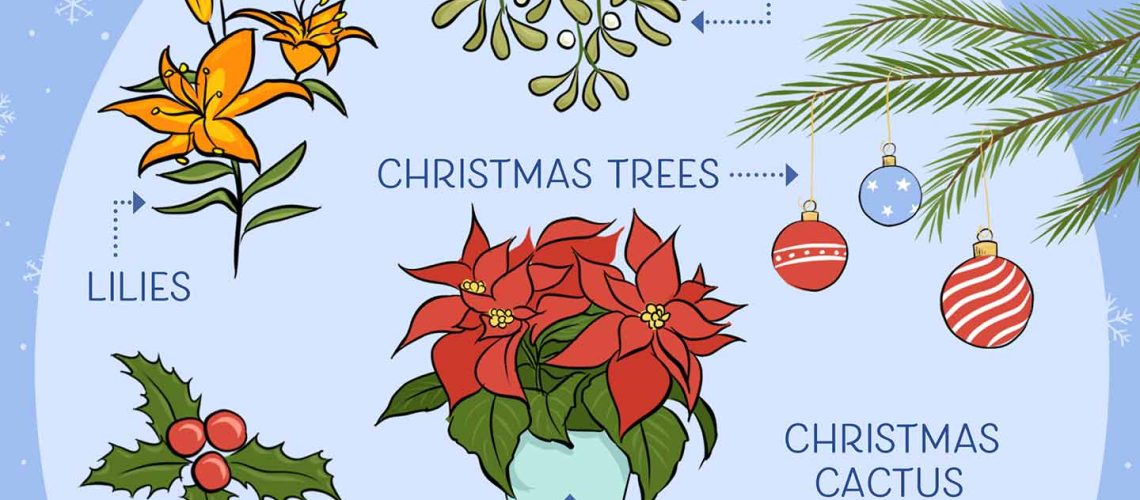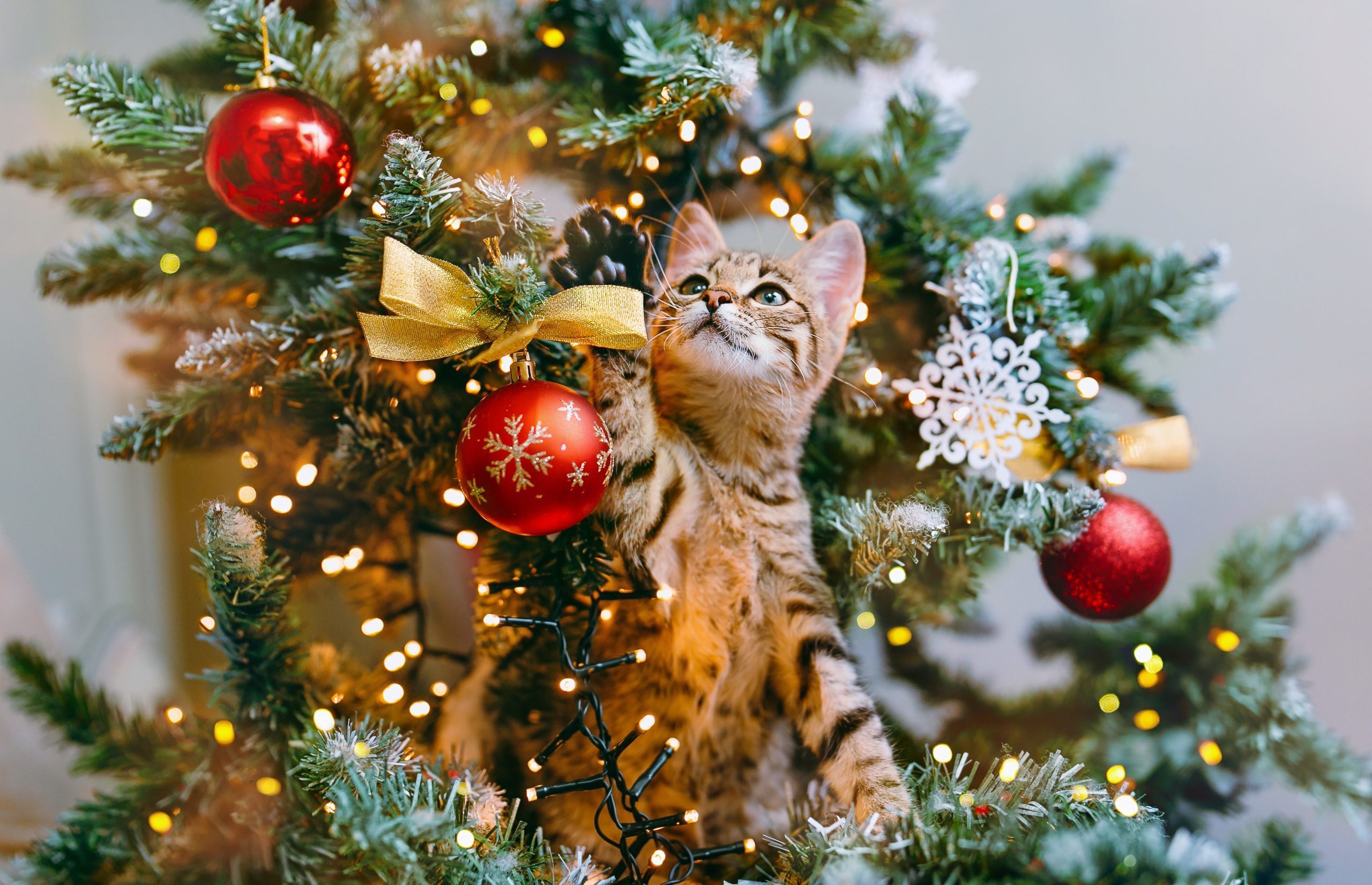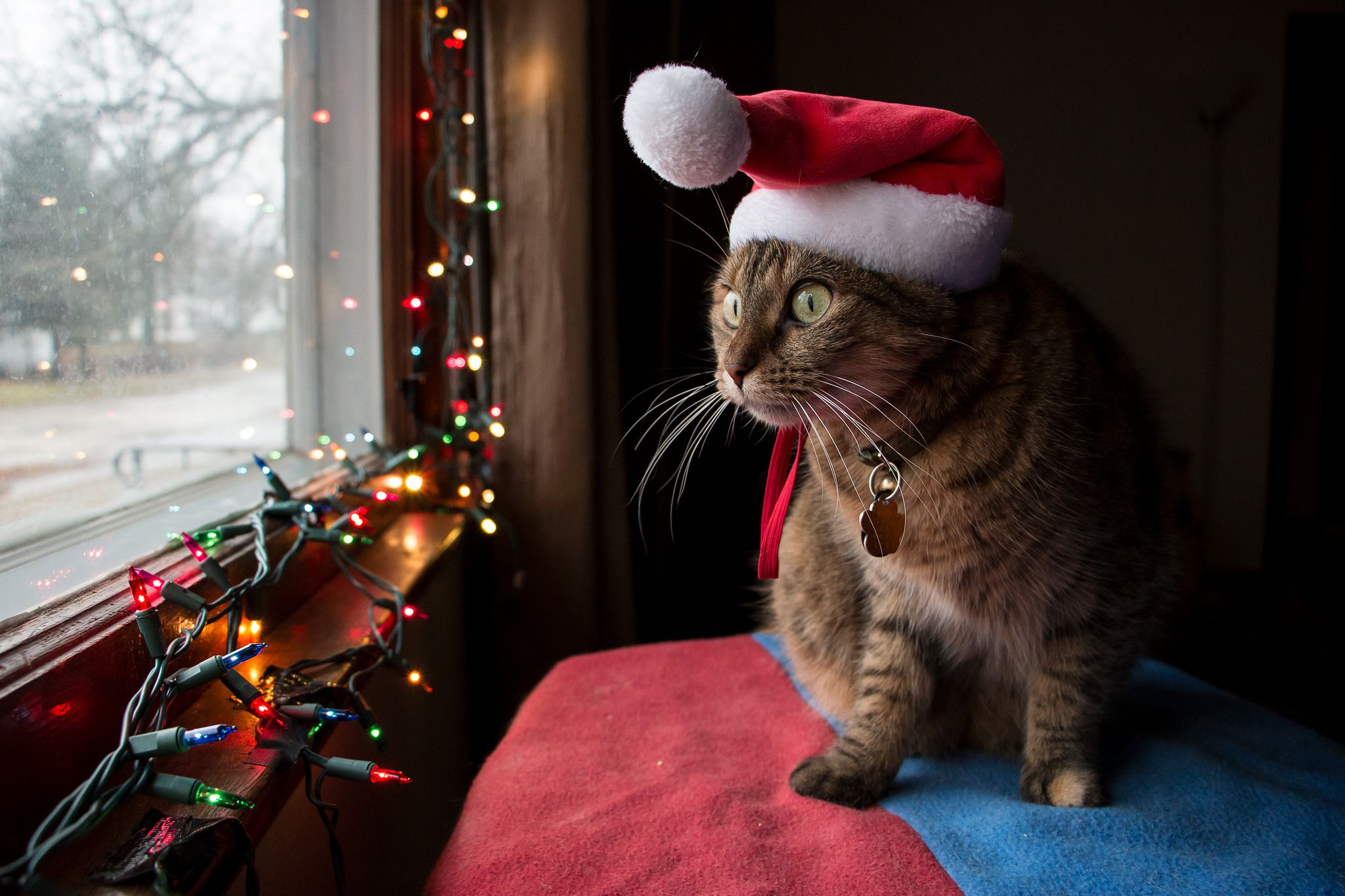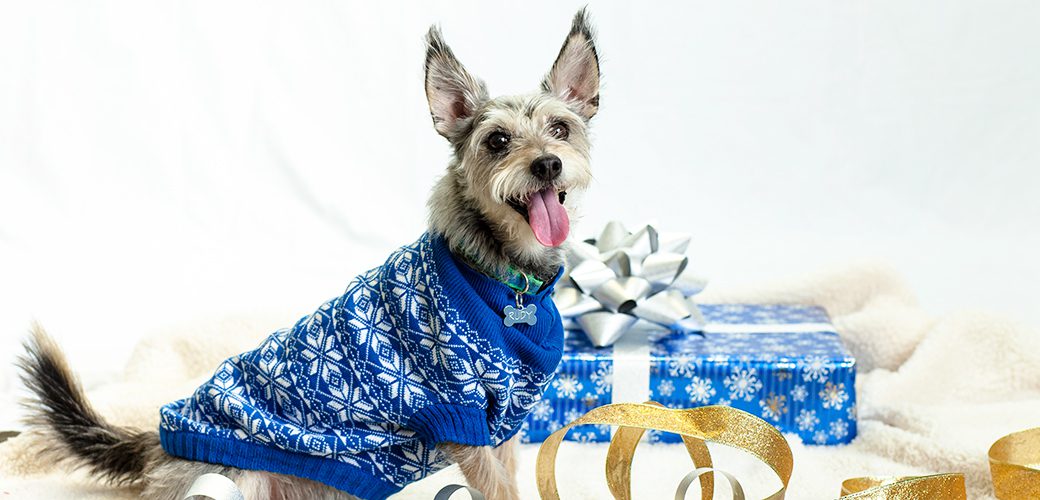Key Takeaways:
- Christmas trees can be toxic to cats and dogs if they chew on the needles or drink the water from the tree stand.
- The sap produced by Christmas trees can cause stomach upset, vomiting, and diarrhea in pets.
- Ornaments and tinsel on the tree pose a choking hazard to pets, and some ornaments may contain toxic substances.
- Artificial trees are generally safer for pets as they do not produce sap or have sharp needles, but they can still pose a choking hazard if ingested.
- To keep pets safe during the holiday season, it is best to place barriers around the tree, secure ornaments tightly, avoid using toxic decorations, and consider using pet-friendly alternatives like non-toxic plants or artificial trees.
Are you ready to unwrap the truth about Christmas trees and their potential dangers for our furry friends? In this article, we will explore whether these festive symbols of joy can pose a risk to our beloved cats and dogs. Understanding this topic is essential for every pet owner, as it can help us ensure the safety and well-being of our four-legged family members during the holiday season. So, let's dive in and discover if those twinkling lights and shiny ornaments could be hiding a hidden danger. Get ready to deck the halls with knowledge that will keep your pets merry and bright!
The Dangers of Christmas Trees for Cats and Dogs
Why Christmas Trees Can Be Dangerous for Pets
As a pet owner, it's important to be aware of the potential dangers that Christmas trees can pose to your furry friends. Cats and dogs are naturally curious creatures, and the bright lights, shiny ornaments, and dangling tinsel on a Christmas tree can be irresistible to them. Unfortunately, these decorations can be hazardous if ingested or if your pets accidentally knock over the tree.
When pets chew on electrical cords from Christmas lights or nibble on ornaments, they risk getting an electric shock or choking on small pieces. Additionally, the water in the tree stand may contain preservatives or chemical additives that can be toxic if consumed by your pets. The pine needles from real trees can also cause stomach upset or even blockages if swallowed.
Potentially Toxic Parts of a Christmas Tree
Several parts of a Christmas tree can be toxic to cats and dogs if ingested:
- Pine needles: If swallowed, they can irritate the mouth and digestive tract.
- Pine sap: It contains substances that can cause stomach upset or skin irritation.
- Tinsel: When ingested, it can lead to intestinal blockages requiring surgery.
- Ornaments: Some ornaments may break easily and pose a choking hazard.
- Lights: Chewing on electrical cords can result in burns or electrocution.
Signs Your Pet Might Be Affected by the Christmas Tree
If you notice any of the following signs in your cat or dog during the holiday season, it could indicate that they have been affected by the Christmas tree:
- Vomiting or diarrhea
- Lethargy or weakness
- Loss of appetite
- Coughing or difficulty breathing
- Excessive drooling or pawing at the mouth
Protecting Your Pets from Christmas Tree Dangers
To keep your pets safe during the holiday season, it's important to take certain precautions:
- Secure your Christmas tree: Make sure your tree is securely anchored to prevent it from falling over if your pet jumps on it.
- Choose pet-friendly decorations: Opt for non-toxic ornaments and avoid using tinsel, which can be dangerous if ingested.
- Keep cords out of reach: Tape down or cover electrical cords to prevent pets from chewing on them.
- Avoid using chemical additives: If you have a real tree, use plain water in the stand instead of preservatives or additives that could be harmful to your pets.
- Sweep up fallen pine needles: Regularly sweep up any fallen pine needles to prevent your pets from ingesting them.
Safe Alternatives and Measures for Pet-Friendly Holiday Decorations
If you're concerned about the potential dangers posed by a traditional Christmas tree, there are alternative options that can still bring holiday cheer without risking harm to your pets:
- Artificial trees: Consider using an artificial tree made from pet-safe materials that won't shed needles or contain toxic substances.
- Fence off the tree area: Use a baby gate or create a barrier around the tree to prevent your pets from accessing it when you're not around.
- Hang decorations higher: Place ornaments and lights higher up on the tree where they are out of reach for your cats and dogs.
- Focus on pet-friendly decorations: Instead of traditional ornaments, use pet-themed decorations or toys that are safe for your furry friends to play with.

How Christmas Trees Can Harm Your Furry Friends
Christmas trees can be a source of danger for our beloved pets. The festive decorations and ornaments on the tree can attract their curiosity, leading them to explore and potentially get into trouble. Cats, in particular, are known for their climbing abilities, which means they may try to climb up the tree and accidentally knock it over. This can cause injuries not only to your pet but also to anyone nearby.
In addition, some Christmas trees are treated with chemicals to preserve their freshness. These chemicals can be toxic if ingested by cats or dogs. Pine needles that fall from the tree can also pose a hazard as they are sharp and can cause injury if stepped on or swallowed.
The Dangers of Climbing
Cats are natural climbers and may see the Christmas tree as an irresistible challenge. They might attempt to climb up the branches, causing the tree to topple over or ornaments to fall off and break. To prevent this, make sure your tree is securely anchored and consider placing a barrier around it to deter your cat from reaching it.
Toxic Chemicals
Some Christmas trees are sprayed with chemicals like pesticides or flame retardants. These substances can be harmful if ingested by pets. Keep an eye out for any signs of chewing or nibbling on the tree branches, as this could indicate that your pet is being exposed to toxic substances.
Which Parts of the Christmas Tree Are Toxic to Cats and Dogs?
While most parts of a Christmas tree are not toxic to cats and dogs, there are certain elements that can be harmful if ingested. One such element is the sap found in pine trees. If your pet chews on the branches or drinks water from the base of a live tree, they may ingest the sap, which can cause stomach upset and diarrhea.
Another potential danger is the water in the tree stand. Some people add preservatives or chemicals to the water to keep the tree fresh for longer. These additives can be toxic if consumed by pets. It's important to cover or block access to the tree stand to prevent your furry friends from drinking this potentially harmful water.
Pine Sap
The sticky sap found on pine trees can cause gastrointestinal upset if ingested by cats or dogs. Symptoms may include vomiting, diarrhea, and loss of appetite. If you notice any of these signs in your pet after they've been near the Christmas tree, it's best to consult with a veterinarian.
Chemical Additives in Tree Water
Some people add commercial tree preservatives or other chemicals to the water in their Christmas tree stand. These additives are designed to extend the life of the tree but can be toxic if consumed by pets. Keep your pets away from the tree stand and consider covering it with a skirt or using a covered stand to prevent access to the water.
Signs Your Cat or Dog Might Be Affected by the Christmas Tree
It's important to be aware of any signs that indicate your cat or dog may be affected by the Christmas tree. While some pets may show obvious symptoms like vomiting or diarrhea, others may exhibit more subtle signs of discomfort.
Gastrointestinal Upset
If your pet has ingested any part of the Christmas tree that is toxic, they may experience gastrointestinal issues such as vomiting, diarrhea, or loss of appetite. Keep an eye out for changes in their eating habits and any unusual bowel movements.
Lethargy and Behavior Changes
Some pets may become lethargic or show changes in their behavior if they are feeling unwell due to exposure to the Christmas tree. They may appear less active, withdrawn, or exhibit signs of discomfort. If you notice any unusual behavior, it's important to monitor your pet closely and seek veterinary advice if necessary.
Protecting Your Pets from Christmas Tree Dangers
To ensure the safety of your pets during the holiday season, there are several measures you can take to protect them from Christmas tree dangers.
Secure the Tree
Make sure your Christmas tree is securely anchored to prevent it from toppling over if your pet tries to climb it. Use a sturdy tree stand and consider attaching the tree to a wall or ceiling using fishing line or other secure methods.
Avoid Decorations at Pet Level
Place fragile ornaments, tinsel, and other decorations that can be easily swallowed or broken out of reach of your pets. Hang them higher up on the tree where your furry friends cannot reach them. Opt for non-toxic decorations whenever possible.
Create a Safe Zone
If you have a particularly curious or mischievous pet, consider creating a designated safe zone in your home where they can be confined when you're unable to supervise them. This can help prevent any potential accidents or injuries related to the Christmas tree.
Safe Alternatives and Measures for Pet-Friendly Holiday Decorations
If you're concerned about the potential hazards posed by traditional Christmas trees, there are alternative options that can still bring festive cheer while keeping your pets safe.
Artificial Trees
An artificial Christmas tree eliminates some of the risks associated with live trees. Look for artificial trees made from non-toxic materials and ensure they are securely assembled to prevent them from toppling over.
Pet-Friendly Ornaments
Choose ornaments made from pet-friendly materials such as fabric, wood, or plastic. Avoid using glass or fragile ornaments that can break easily and pose a danger if ingested by your pets.
Natural Decorations
Consider using natural decorations like pinecones, dried flowers, or garlands made from non-toxic plants. These can add a touch of nature to your holiday decor without posing a risk to your furry friends.
Conclusion
While Christmas trees can bring joy and festive spirit into our homes, it's important to be mindful of the potential dangers they can pose to our pets. By taking precautions and being aware of the risks, we can ensure a safe and enjoyable holiday season for both our furry friends and ourselves.
In conclusion, Christmas trees can be potentially harmful to cats and dogs. The needles of the tree can cause stomach upset or blockages if ingested, and the water in the tree stand may contain harmful chemicals. It is important to take precautions and keep pets away from the tree to ensure their safety during the holiday season.
What Christmas trees are toxic to cats?
The most popular trees for holiday decorations are fir, spruce, and pine. If cats eat the needles from these trees, they may experience mild toxicity. The oils in the needles can cause gastrointestinal issues and mouth irritation.
What happens if cats chew on Christmas tree?
When cats consume small quantities of tree sap by chewing on branches and needles, it can lead to gastrointestinal issues such as vomiting, cramps, excessive drooling, and diarrhea. If a cat consumes a large amount of sap at once or consistently consumes it over time, it can cause damage to their kidneys and liver. Additionally, any method of consuming the resin can be harmful to cats.
Will my Christmas tree hurt my cat?
Live Christmas trees such as fir, spruce, and pine are popular choices, and they are generally safe for pets as they are non-toxic. However, the needles can cause irritation if ingested and can also lead to digestive problems if consumed in large quantities.
Can I have a real Christmas tree with my cat?
There is a slight danger with needles falling off Christmas trees because if they are ingested, they can cause harm to your cat's digestive system. While an artificial tree may be more convenient, if you're set on getting a real tree, opting for a non-dropping variety is safer.
Are pine Christmas trees poisonous to cats?
According to Petcha, pine trees used as Christmas trees can be toxic to cats and may lead to liver damage and even death. If you want to have a live tree, it is recommended to choose a fir or spruce instead.
What should I do if my cat eats pine needles?
To treat House Pine Poisoning in cats, it is important to rinse the cat's mouth with water to remove any pieces of the plant. If necessary, the veterinarian may induce vomiting to prevent choking. Prolonged vomiting or diarrhea can lead to dehydration in cats.

















